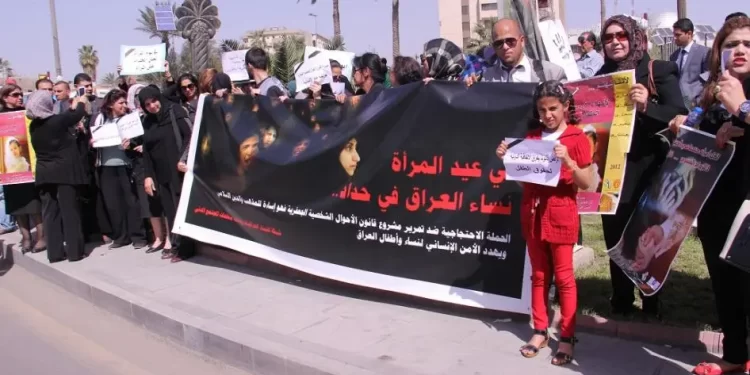Lagatar24 Desk
Baghdad: A proposed bill in Iraq’s parliament has ignited widespread anger and concern, as it seeks to lower the legal age of marriage for girls to just 9 years old. The legislation, introduced by the Iraq Justice Ministry, aims to amend the country’s Personal Status Law, which currently sets the minimum age for marriage at 18.
The bill would allow citizens to choose whether religious authorities or the civil judiciary should decide on family matters, a provision critics argue could significantly reduce women’s rights in inheritance, divorce, and child custody. The proposed changes would enable girls as young as 9 and boys as young as 15 to marry, raising fears of an increase in child marriage and exploitation.
Opponents of the bill, including human rights organizations, women’s groups, and civil society activists, warn that the legislation would roll back years of progress in gender equality and women’s rights. They argue that child marriage leads to severe consequences for young girls, including higher dropout rates from school, early pregnancies, and an increased risk of domestic violence.
UNICEF reports that 28 percent of girls in Iraq are already married before the age of 18. Critics of the bill, like Human Rights Watch (HRW) researcher Sarah Sanbar, argue that passing this law would represent a significant step backward for the country. “This bill could legalize the marriage of girls as young as nine years old, stealing the futures and well-being of countless girls,” Sanbar stated.
Amal Kabashi, a representative of the Iraq Women’s Network, expressed strong opposition to the amendment, noting that it would provide “huge leeway for male dominance over family issues” in a society that is already deeply conservative.
The bill, which had been withdrawn in late July due to objections from many lawmakers, resurfaced in an August 4 parliamentary session, buoyed by support from powerful Shia blocs that dominate the chamber. If passed, this legislation would mark a significant shift from the 1959 Personal Status Law, which had transferred family law authority from religious figures to the state judiciary.
Proponents of the bill argue that it aims to standardize Islamic law and protect young girls from “immoral relationships.” However, opponents dismiss this justification as deeply flawed, insisting that it ignores the harsh realities of child marriage.
“This amendment undermines the principle of equality under Iraqi law,” Sanbar of HRW added, emphasizing the risk of legalizing the marriage of girls as young as nine. “Girls belong on the playground and in school, not in a wedding dress,” she said.
The future of the bill remains uncertain, as it faces strong opposition both within and outside of parliament. Whether it will succeed where previous attempts have failed is yet to be seen.






